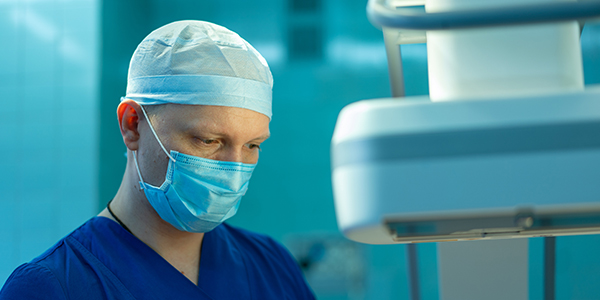Expert ERCP Procedure: Insights and Analysis
Discover the intricacies of the ERCP procedure at Vanguard Gastroenterology Clinic in New York, NY. Our team of experienced gastroenterologists provides expert insights and in-depth analysis into this specialized endoscopic technique, offering you a comprehensive understanding of the examination and its significance for diagnosing and treating various biliary and pancreatic conditions.

At Vanguard Gastroenterology Clinic, our Expert ERCP Procedure service offers a highly specialized and advanced endoscopic technique to diagnose and treat various biliary and pancreatic conditions. With the expertise of our skilled gastroenterologists and cutting-edge technology, we provide precise insights and targeted interventions, ensuring optimal patient outcomes and improved digestive health.
Understanding the ERCP Procedure
ERCP (Endoscopic Retrograde Cholangiopancreatography) is a minimally invasive diagnostic and therapeutic procedure. It combines endoscopy and fluoroscopy to visualize the bile ducts and pancreatic ducts. During the procedure, a thin, flexible endoscope is inserted through the mouth and guided through the stomach to reach the duodenum, where the bile duct and pancreatic duct drain. Contrast dye is then injected, and X-rays are taken to evaluate the anatomy and detect any abnormalities.
The Importance of Expert ERCP
The ERCP procedure is essential for diagnosing and treating various conditions affecting the biliary system and pancreas. It is commonly used to identify and remove gallstones, treat bile duct obstructions, and investigate conditions such as pancreatitis, bile duct tumors, and strictures.
Expert Insights and Analysis
At Vanguard Gastroenterology Clinic, our expert gastroenterologists possess extensive experience and expertise in performing ERCP procedures. They meticulously analyze the images and X-rays obtained during the examination to provide accurate diagnoses and individualized treatment plans tailored to each patient's unique needs.
Precise Targeted Interventions
One of the key advantages of ERCP is its therapeutic capabilities. During the procedure, our gastroenterologists can perform various interventions, including removing gallstones, placing stents to relieve bile duct obstructions, and taking biopsies for further evaluation. If needed, patients may also benefit from in-office infusion therapy to support their treatment and recovery.
Comfort and Safety
The ERCP procedure is performed under sedation, ensuring your comfort and safety throughout the examination. Most patients can resume normal activities shortly after the procedure.
Post-Procedure Care and Follow-Up
After the ERCP procedure, our team will provide you with post-procedure instructions and discuss the findings and any necessary follow-up care. We are committed to supporting you throughout your treatment journey, ensuring the best possible outcomes for your digestive health.
Partnering in Your Digestive Health
If you are experiencing symptoms related to the biliary system or pancreas, or if your healthcare provider has recommended an ERCP procedure, our team at Vanguard Gastroenterology Clinic is here to provide expert care and personalized attention. With our commitment to excellence, advanced technology, and compassionate approach, we are dedicated to helping you achieve optimal digestive health.
Frequently Asked Questions (FAQs)
How is the ERCP procedure different from other endoscopic procedures?
Unlike standard endoscopy, which examines the upper gastrointestinal tract, and colonoscopy, which examines the colon, ERCP focuses on the biliary system and pancreas. It allows for both diagnostic evaluation and therapeutic interventions.
Is the ERCP procedure painful?
No, the ERCP procedure is not painful. It is performed under sedation, ensuring your comfort throughout the examination.
How long does the ERCP procedure take?
The duration of the ERCP procedure varies depending on the complexity of the case. On average, it takes about 30 minutes to an hour to complete.
What can I expect after the ERCP procedure?
After the ERCP procedure, you may experience some mild side effects, such as bloating or a sore throat. Most patients can resume normal activities shortly after the procedure.
Are there any risks associated with the ERCP procedure?
ERCP is generally considered safe; however, like any medical procedure, there are some risks, such as pancreatitis, infection, bleeding, and perforation. Your gastroenterologist will discuss these risks with you before the procedure.
How should I prepare for the ERCP procedure?
Your gastroenterologist will provide you with specific instructions on how to prepare for the ERCP procedure. This typically involves fasting for a certain period before the procedure.
Can anyone undergo an ERCP procedure?
Most patients can undergo ERCP; however, it may not be suitable for individuals with certain medical conditions or those who are at increased risk of complications. Your gastroenterologist will assess your suitability for the procedure based on your medical history and individual health needs.
